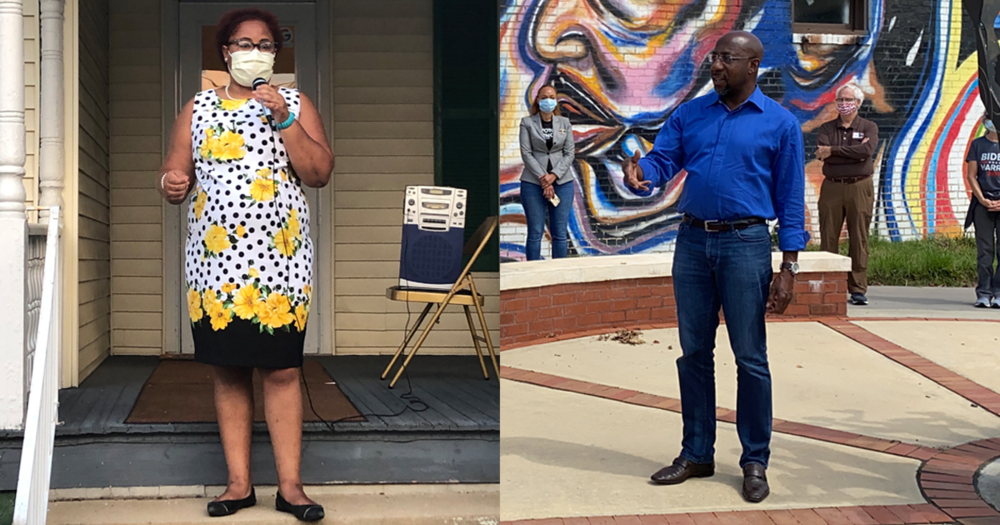
Caption
Environmental justice advocate Marquita Bradshaw, left, and Rev. Raphael Warnock, right, are running for the U.S. Senate in Tennessee and Georgia, respectively.
Credit: Photos via Walker Kinsler on Wikimedia Commons and courtesy of Warnock for Georgia

